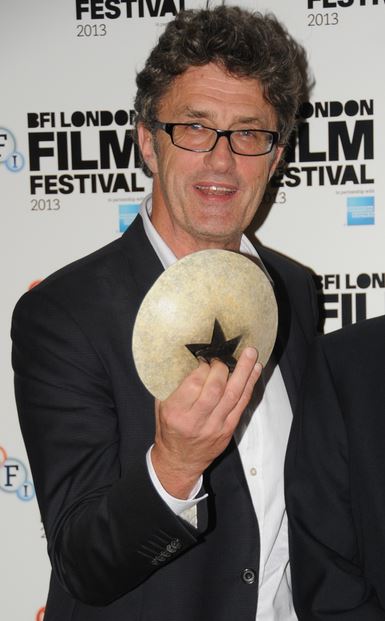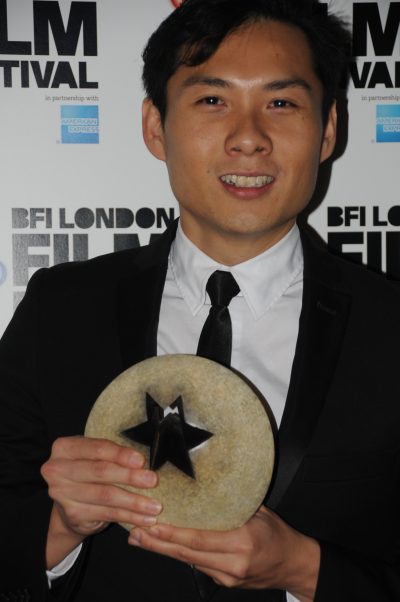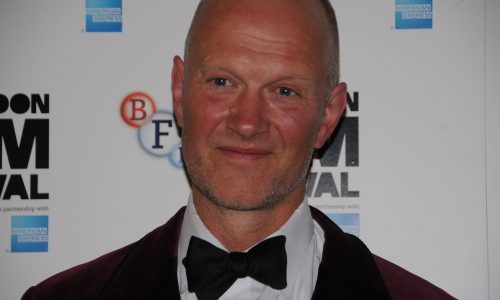
A visiting tutor at the National Film and Television School in Buckinghamshire has won the top prize at the London Film Festival Awards and one of his pupils has collected the award for the Best First Film on the same night.
Pawel Pawlikowski, the Polish director best known for the films My Summer of Love and Last Resort, received the London Star for Best Film at this year’s festival, for his film Ida. It’s his first film made in his homeland and set in the years after the second world war. “I couldn’t make a film about contemporary Poland as I haven’t lived there as an adult, so I went for a period that I know from a perspective of a child.” His inspiration came from an elderly woman he met who’d been hiding a surprising past. “She used to be a Stalinist judge in her youth and became a very wise old lady later on in life. I met her as a wise old lady, warm and funny, and then I later discovered that she had blood on her hands, that she actually sentenced innocent people to death.” The jurors, presided over by the recently retired film critic of the Observer, Philip French, said they’d been “deeply moved by the courageous film that handles, with subtlety and insight, a painfully controversial historical situation – the German occupation and the Holocaust – which continues to resonate.”

One of his pupils from the NFTS, Anthony Chen, whose debut feature Ilo Ilo won the corresponding award in Cannes, received the Sutherland Prize in London. “The imaginative and innovative voice of this film-maker elevated the film technically and narratively, and made us wonder at the fragile nature of family life this modern Singapore tale,” said the Best First Film jury. Like his teacher, Chen has made his home in London, which made this award all the more significant for him. ” It’s like a homecoming film. It’s incredibly special. I really came here tonight not expecting anything. I was thinking a nice night out, a good dinner and that was it. So this was really really special.” Chen recalled that Pawlikowski had been a tough teacher. “He was actually quite hard with me. He was always telling me ‘Anthony, more poetry, more poetry.’ But he was a good teacher and the NFTS was a very very good school.”
“I feel bad about that,” laughed Pawlikovski, when he was reminded of this, but he was delighted to see his protege picking up an award. “I was so proud. He was great. It was a great year and he was the star. It was a year with Paul Wright, Tanel Toom and Anthony Chen and all of them have done really really well. I’m so thrilled for Anthony. I saw his film in Toronto. I immediately texted him ‘well done.’”
The Grierson Award for the Best Documentary went to the German film My Fathers, My Mother and Me, a portrait of Friedrichshof, the largest commune in Europe, and the emotional impact it had on its residents. Cutie & The Boxer, Manhunt and Pipeline were also commended by the documentary jury, which included the BBC news presenter Sophie Raworth, who presented the award.

The old maxim of “write what you know” paid off for Jonathan Asser, who used to work with violent prisoners in the southeast of England. His first screenplay, for David Mackenzie’s prison drama Starred Up, earned him, at the age of 49, the Best British Newcomer award. But having achieved this success for his first film, what will he write about next? “Carry on writing what you know. Really. I’ve written another screenplay. It’s called Pretty and it’s about a guy who gets out of prison and wants to become a boxer, but gets dragged into bare knuckle fighting and a bizarre form of prostitution related to the fighting before he can get back on track to his boxing career and find love. And it’s a happy ending. I’m about redemption and change for the good.”
The other award at the ceremony, hosted by the actress Joanna Lumley, was the presentation of the BFI’s highest honour, the Fellowship, to the veteran actor Sir Christopher Lee. As a collaborator with last year’s new BFI Fellow, Tim Burton, Sir Christopher has become close to one of his favourite actors, Johnny Depp, so close that he spent most of his acceptance speech praising Depp. “He’s one of the very few young actors on screen today who is truly a star,” he beamed, as he expressed his surprise and delight that Depp had come to the Banqueting Hall in Whitehall to present him with the honour.
With none of the festival’s higher profile gala films being included in the official competition, the winners were never going to be destined for the kind of widespread media coverage afforded to other awards, but the story of a teacher and his pupil being honoured on the same night is almost something worthy of a film itself. It if happened in a movie, you wouldn’t believe it.
